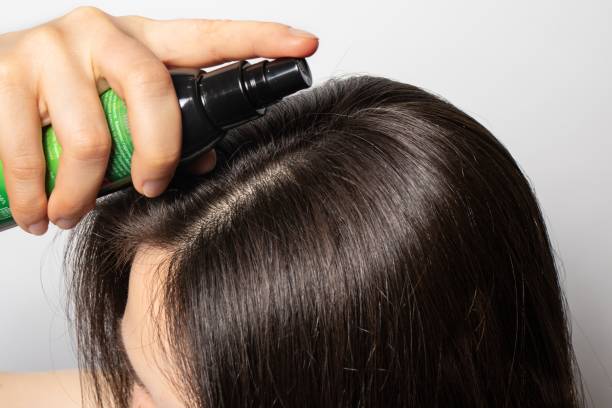Dealing with a dry scalp can be especially frustrating if you have natural hair.
The itchiness, flakes, and irritation can be uncomfortable, not to mention affect the look and feel of your hair. Natural hair textures often need a little extra moisture and care, and a dry scalp can signal that your routine may need some adjustments.
Luckily, there are effective remedies you can try to restore moisture, comfort, and health to your scalp.
In this article, we’ll explore some tried-and-tested remedies to help you treat a dry scalp and get your natural hair looking and feeling its best again.
Table of Contents
Understanding the Causes of Dry Scalp
Before diving into remedies, it’s helpful to understand what might be causing your dry scalp.
Some main reasons include:
- Lack of Moisture: Natural hair tends to be drier due to its curly texture, which makes it difficult for natural oils to reach the scalp and ends.
- Product Buildup: Using heavy oils, creams, and styling products can lead to a buildup on the scalp, blocking moisture and causing dryness.
- Harsh Weather: Cold, dry weather can zap moisture from your scalp and hair, making it more prone to dryness.
- Frequent Washing: Over-washing can strip away natural oils, leaving the scalp unprotected and dry.
- Skin Conditions: Sometimes, issues like eczema or psoriasis can lead to dryness and itching.
Effective remedies to help soothe and hydrate your scalp.
Use a Moisturizing Shampoo
A moisturizing shampoo is key to restoring hydration. Look for a sulfate-free formula that’s specifically designed for dry or natural hair, as it will gently cleanse without stripping your scalp of its natural oils.
Hydrating ingredients like aloe vera, shea butter, and coconut oil can help lock in moisture and leave your scalp feeling refreshed.
Tip:Avoid shampoos with sulfates or parabens, as they can contribute to dryness. Aim to wash your hair only once or twice a week to prevent over-drying.
Try an Apple Cider Vinegar Rinse
Apple cider vinegar (ACV) is a fantastic natural remedy that can help balance your scalp’s pH levels and remove buildup. It has antimicrobial properties that may reduce itchiness and irritation caused by dryness.
To make an ACV rinse, mix one part apple cider vinegar with two parts water.
Apply the mixture directly to your scalp after shampooing, let it sit for a few minutes, and then rinse thoroughly.
Note: Be cautious not to use ACV too frequently, as it can be drying if overused. Once a month is typically enough for most people.
Deep Condition Regularly
Deep conditioning is essential for natural hair, as it provides intense moisture to both the hair and scalp.
Look for a deep conditioner that’s rich in nourishing oils like avocado, olive, or argan oil. These ingredients can help keep your scalp hydrated and prevent flakes.
For best results, apply a deep conditioner once a week. Use a plastic cap and let the conditioner sit for at least 20–30 minutes before rinsing.
This will help the ingredients penetrate deeply, giving your scalp a thorough moisture boost.
Massage Your Scalp with Natural Oils
Natural oils are excellent for a dry scalp, as they mimic the scalp’s natural sebum, providing hydration and protection. Some effective oils for treating a dry scalp include:
- Coconut Oil: Known for its moisturizing properties, coconut oil helps to soothe and hydrate a dry, flaky scalp.
- Olive Oil: Rich in vitamins, olive oil can help soften and moisturize the scalp.
- Jojoba Oil: This lightweight oil closely resembles natural sebum, making it ideal for scalp care.
Gently warm a small amount of oil and massage it into your scalp using your fingertips.
Leave it on for 20–30 minutes before shampooing, or leave it overnight for an intense treatment.
Use Aloe Vera Gel
Aloe vera is another fantastic ingredient for a dry scalp due to its soothing and moisturizing properties. It’s lightweight, so it won’t clog your pores, and it helps balance scalp moisture levels.
Apply fresh aloe vera gel (or a store-bought version without added chemicals) directly to your scalp.
Leave it on for about 20 minutes, then rinse with lukewarm water. Using aloe vera once a week can help keep dryness at bay and leave your scalp feeling refreshed.
Avoid Hot Water When Washing
Hot water can strip your scalp of natural oils, leading to more dryness. Opt for lukewarm water instead, as it’s gentler on both your scalp and hair. After washing, finish with a cool rinse to help seal the hair cuticle and retain moisture.
Stay Hydrated and Eat a Balanced Diet
Hydration isn’t just about what you put on your scalp; it also involves taking care of your body.
Drinking enough water and eating a balanced diet rich in omega-3 fatty acids (found in fish, flaxseed, and walnuts) can improve scalp health from the inside out. Vitamins A, C, and E also play a role in keeping your skin and scalp healthy, so include plenty of fruits, vegetables, and healthy fats in your diet.
Use a Humidifier
If you live in a dry climate or experience dry indoor air, especially during colder months, a humidifier can help. Adding moisture to the air prevents your scalp from drying out and reduces the likelihood of itchiness and flaking.
Final Thoughts
A dry scalp doesn’t have to be a permanent issue, even with natural hair. By adjusting your routine, using the right products, and incorporating natural remedies, you can enjoy a hydrated, healthy scalp.
Try experimenting with a few of these remedies to see what works best for you, and remember that consistency is key.
With the right approach, your scalp will soon feel soothed, and your natural hair will look and feel better than ever.
Photo | getty























